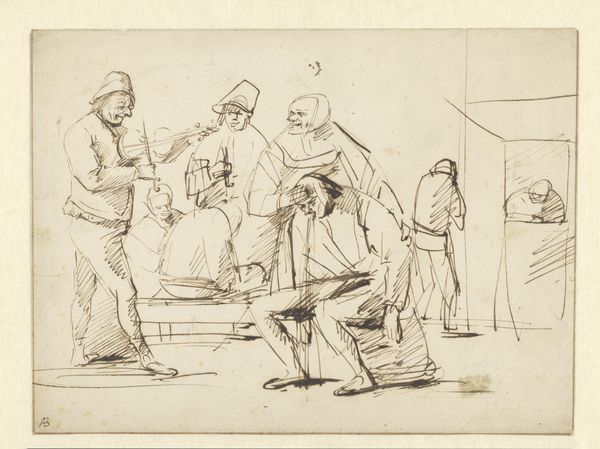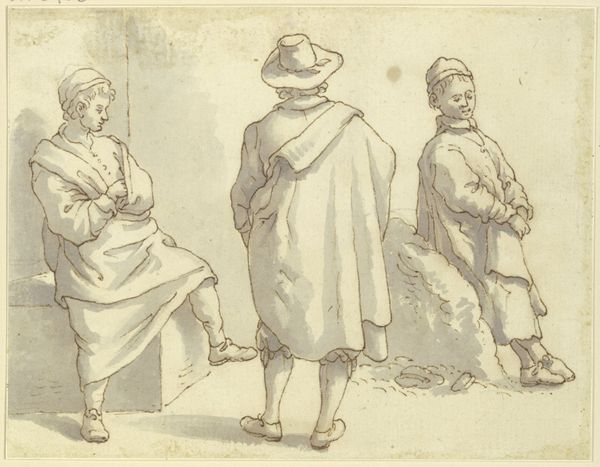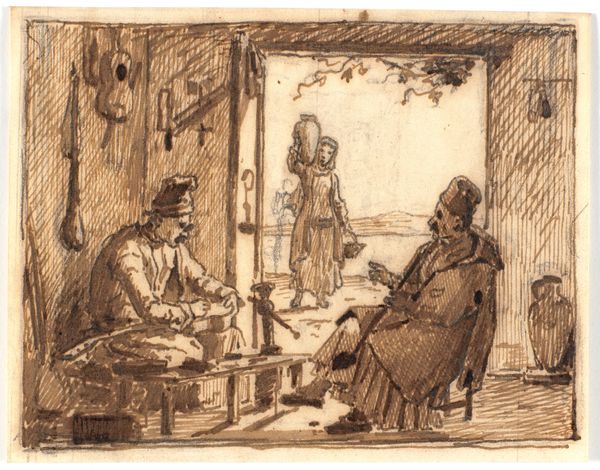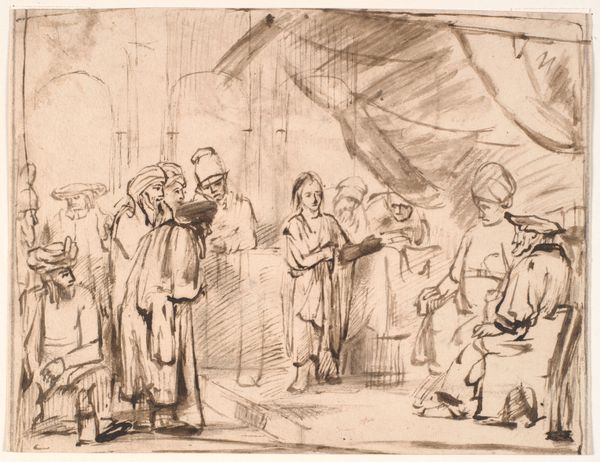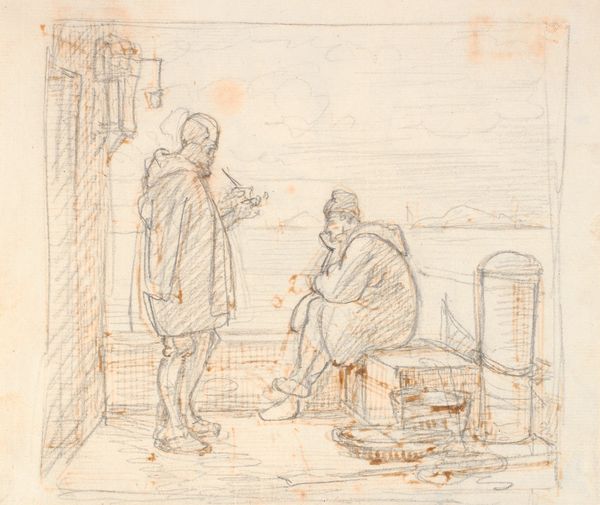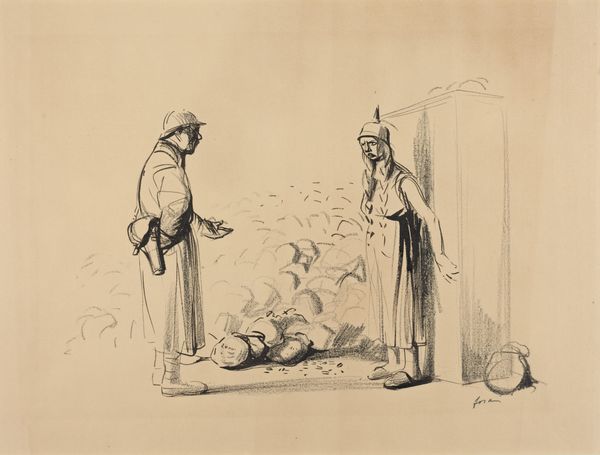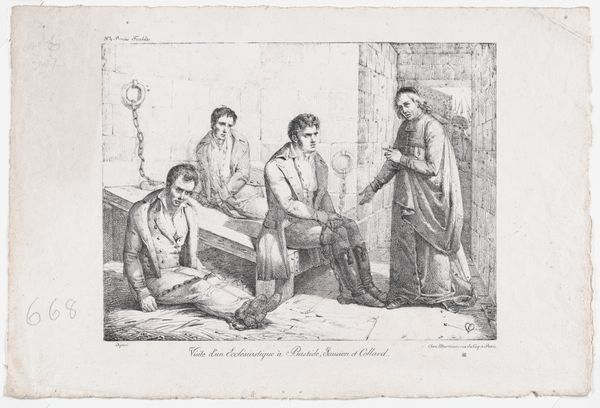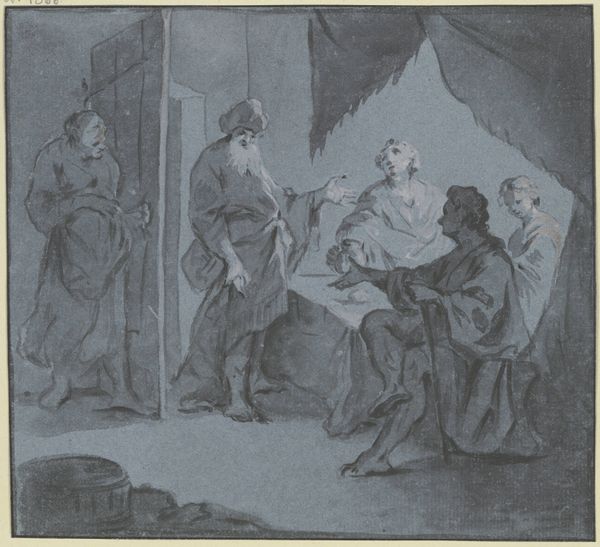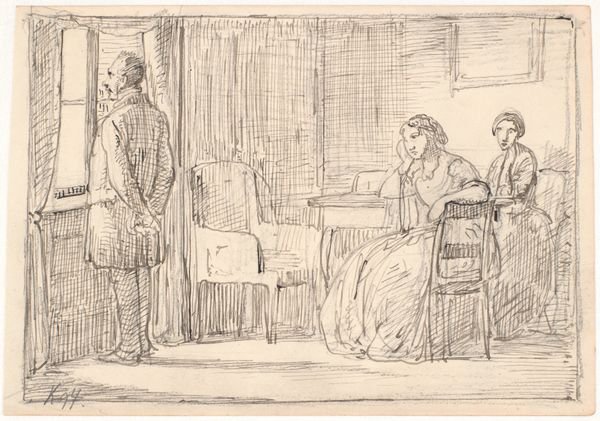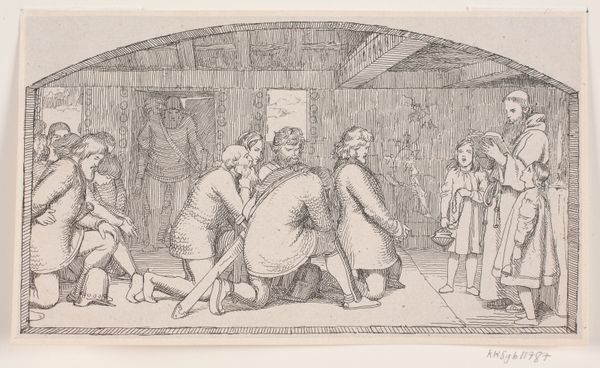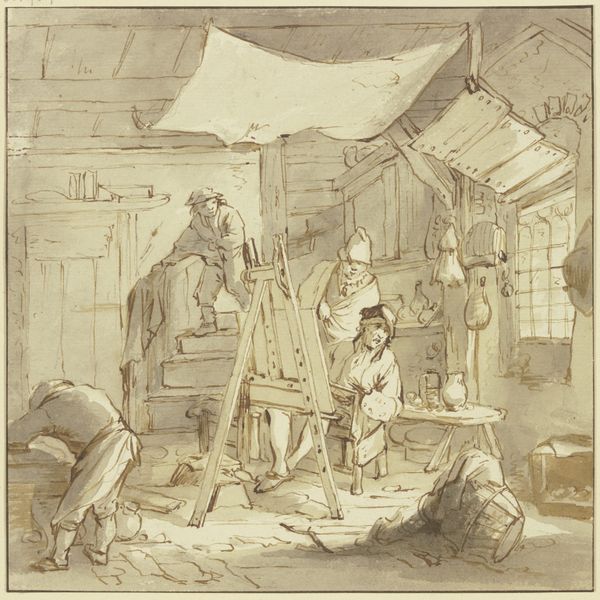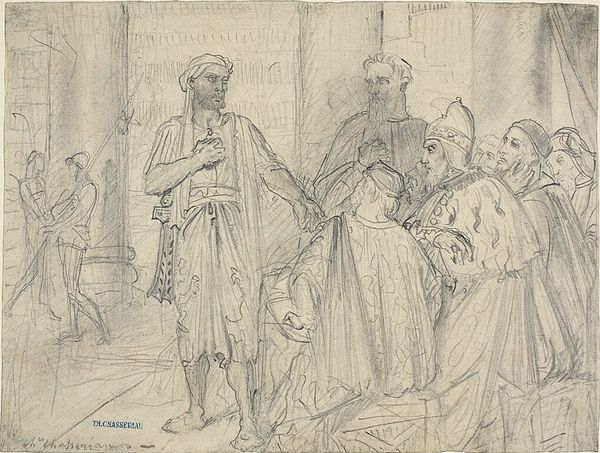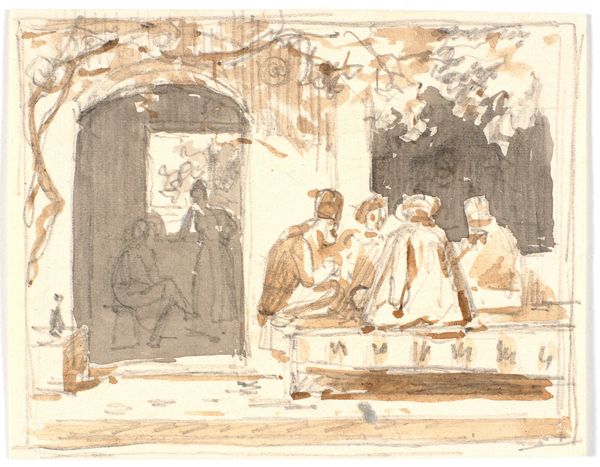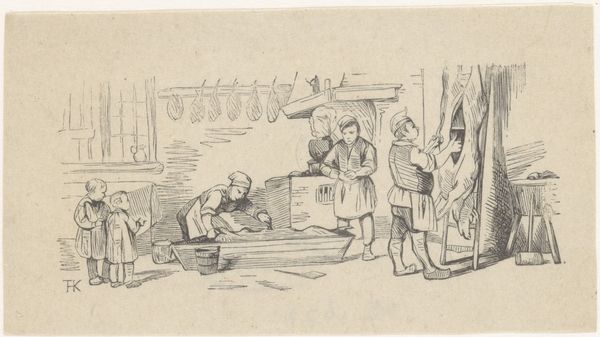
drawing, ink, pencil, pen
#
landscape illustration sketch
#
drawing
#
mechanical pen drawing
#
pen illustration
#
pen sketch
#
figuration
#
personal sketchbook
#
ink
#
sketchwork
#
romanticism
#
pen-ink sketch
#
pencil
#
orientalism
#
sketchbook drawing
#
pen
#
genre-painting
#
storyboard and sketchbook work
#
sketchbook art
Dimensions: 77 mm (height) x 97 mm (width) (bladmaal)
Editor: This is "Brætspillende orientalere," or "Board-Playing Orientals," a pen and ink drawing from 1835-36 by Martinus Rørbye. It feels incredibly immediate, like a captured moment. What stands out to you about its formal qualities? Curator: The briskness of line is certainly paramount. Notice how Rørbye employs hatching to model form and suggest depth. The figures are not merely outlined; rather, they are constructed through a series of short, rhythmic strokes. The limited tonal range emphasizes line as the dominant formal element. Editor: So, the composition relies heavily on line and less on traditional shading? Curator: Precisely. Consider the way the artist defines the architectural space around the figures. It is achieved primarily through linear perspective and the strategic placement of lines to create planes. This emphasis flattens the picture plane, inviting a more critical engagement with the forms themselves. Editor: The 'Orientalist' aspect feels less about grand pronouncements and more about simply documenting what he sees. Curator: Indeed, yet we must consider that what is selected for depiction is always a choice laden with its own representational and semiotic weight. But, tell me, does the rapid execution detract or enhance the artwork's immediacy for you? Editor: It really does enhance it, I think. It feels fresh and genuine. It gives you insight to how he wanted to capture it on paper. I came into this conversation focused on just its historical aspect. Now I'm much more curious about how Rørbye crafted the whole visual structure. Curator: I agree. It allows us a fascinating glimpse into the artist's process and choices regarding line, form, and ultimately, representation itself.
Comments
No comments
Be the first to comment and join the conversation on the ultimate creative platform.
